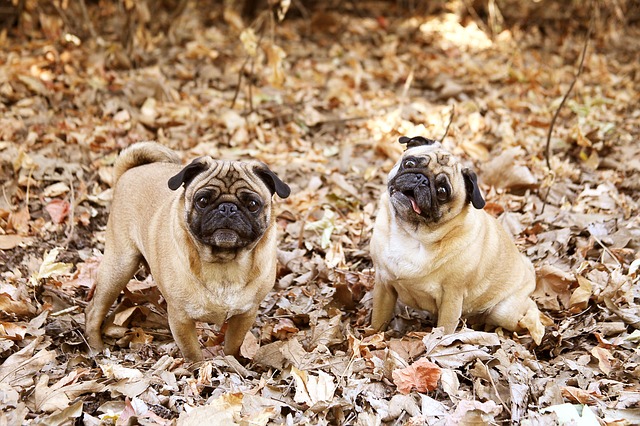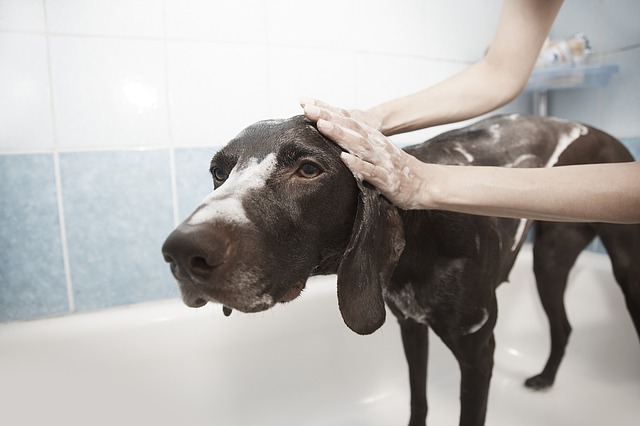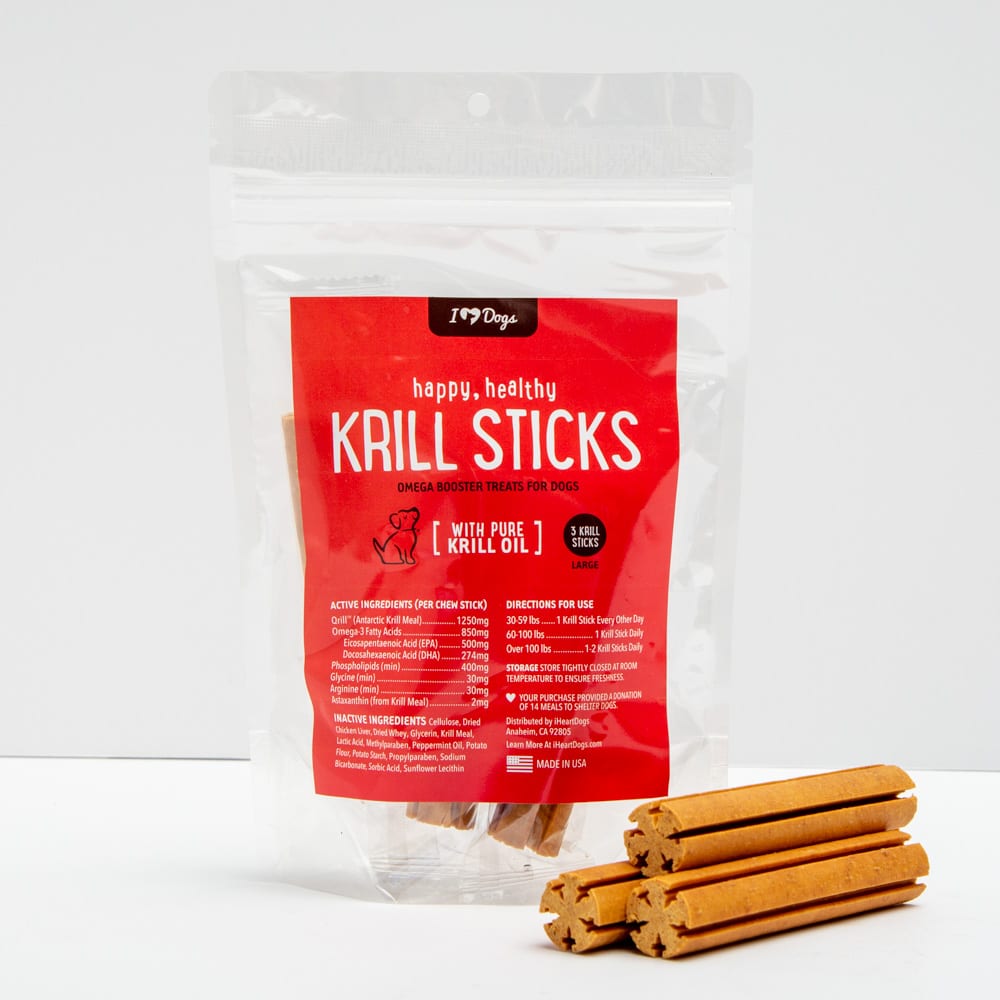Some of us sail right through the spring and summer without so much as a sniffle only to break into sneezing fits come autumn. Fall allergies in humans are typically caused by ragweed, dust mites, and mold. These same culprits can also affect our dogs, but the symptoms tend to manifest quite differently in our canine companions. Some dogs have respiratory symptoms like sneezing and watery eyes, but itchy/inflamed skin is far more common.

Many dogs have a genetic predisposition toward allergic skin problems, with pollen, animal dander, plants, insects, foods and medications among the common triggers. Unfortunately, it is impossible to protect your pup from every allergen, but there are several things you can do to fight their effects.
Consistently Feed A High Quality Diet
The symptoms of food allergies and environmental allergies manifest in many of the same ways, making it difficult to pinpont your dog’s triggers without expensive diagnostic testing. Rather than take the costly testing route, many people experiment with diet instead. Not only are most allergic conditions caused by airborn particles, not food, constant diet changes can actually hinder the success of veterinary diet trials.
Instead, choose a food prepared from “human-grade” ingredients and avoid “meals,” “by-products,” artificial colors and flavors, moistening agents (propylene glycol, carageenan, etc.), added sugar, rendered fat, and other “feed-grade” components, unless otherwise directed by your vet.

Wipe Paws After Going Outside
Every time dogs step outside, they are surrounded by countless potential allergens, many of which end up accumulating in microscopic particles on their coat and paws. Those that suffer from seasonal and environmental allergies should have their paws wiped down with gentle, moist towelettes such as Project Paws® Aloe & Oatmeal Grooming Wipes for Dogs each time they come inside to minimize the chance of reactions.
Keep Their Environment Clean
Dust and airborne allergens accumulate everywhere in your home and mold spores are more prevalent in the fall. Washing your pup’s bedding once a week and vacuuming/dusting frequently will help reduce reactions in your dog and the entire family. Remember to change your vacuum bag and air filters frequently.

Give Them Soothing Baths
Bathing not only reduces the allergens that accumulate on your dog’s skin, using cool water and specially formulated shampoos can help sooth itching and irritation. Never use shampoos made for humans and be sure that your vet approves your product choice before using it on your pet.

Ensure They Get Omega-3 Fatty Acids
Omega-3 fatty acid products made from high-quality sources like krill help to reinforce the skin’s barrier, reduce inflammation, and can be helpful for all types of allergies. Unlike traditional fish oils, krill oil contains phospholipids, which our pets’ bodies use to generate cell membranes.
Happy, Healthy™️ Krill Sticks provide the Omega-3s your dog needs to support skin and coat health, joint health, heart health, immune system health, cellular health, and brain and eye development and maintenance.
Concerned about nasty fish breath? Krill sticks are made with breath-freshening peppermint oil. Plus they scrub the plaque from dogs’ teeth as they chew!
Happy, Healthy™️ products are made in the USA and come with a 90-day money back guarantee. Best of all, your purchase helps to feed less fortunate dogs in shelters! Each bag of Krill Sticks provides 14 meals to pups in need!
H/T to PetMD & Mercola Healthy Pets
These statements have not been evaluated by the Food and Drug Administration. This product is not intended to diagnose, treat, cure, or prevent any disease. The information on this website is not intended to replace a one-on-one relationship with a qualified healthcare professional.

 Toledo, United States.
Toledo, United States.